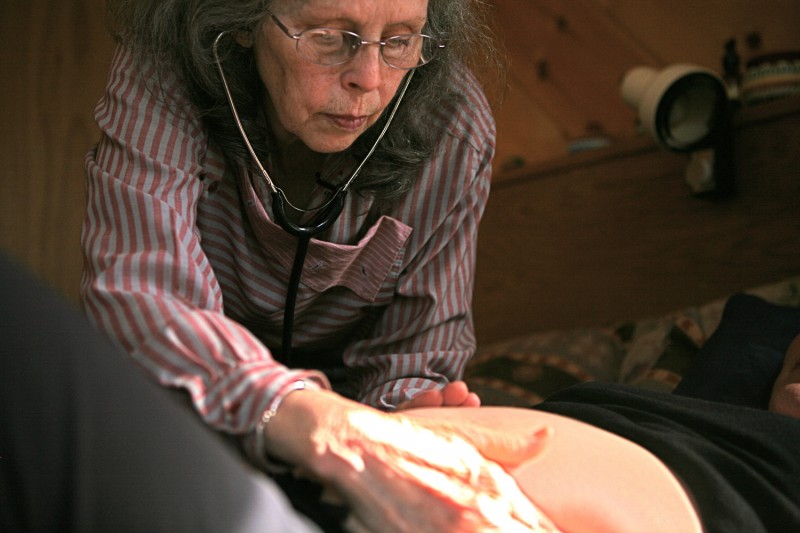My family of five and I live in sunny central Florida. But we were true Mississippians until our move farther south almost two years ago. To be an aware Mississippian is a special kind of conundrum – constantly battling the horrors of our past, the realities of our modern life and our healthy dreams for the future.
If you happen to be a Mississippian passionate about solving many of our social ills through midwifery care, you are left with the empty shell of a once vibrant midwifery community numbering over 4,000 self-identified midwives according to a 1920’s survey which was the impetus for the first and only regulation of non-nurse midwives in Mississippi.
Our traditional midwives were even trained and supported by the Department of Health. For reasons I can only pinpoint to the growing greed and capitalization of our high birth rates, midwives were systematically targeted and eliminated from the rosters until Mississippi’s midwifery registration was abolished and forgotten. Mississippi midwives were driven underground and very few babies were born in the comfort of their own home with the assistance of qualified midwives.
This is not a unique story. It simultaneously happened across the country as birth became big business and midwives became public policy enemy to the riches and power of hospital birth. Even though this story began to play out generations before I was born, those political power plays affected the births of my children and ultimately drove us 4 hours north of our home to birth with Licensed Midwives – a designation that does not exist in my home state.
Our youngest son was born at The Farm in Summertown, Tennessee. For three weeks that hot summer, we lived in America’s oldest intentional community. In other words, our son was born on a hippie commune. In 1970, sixty school buses left San Francisco and caravanned to Tennessee where land was cheap and people were nice.
Ina May Gaskin, America’s mother of midwifery, began learning the art of midwifery as she and other women attended births in the caravan for those who wanted to birth powerfully at home with their partners rather than drugged and alone in a hospital.
Eventually, the traveling troupe of buses landed in Tennessee and began working hard, living off the land, and making lots of babies. Ina May and many other ladies threw themselves into midwifery and the modern American homebirth was born. The Farm Midwifery Center continues to serve women and babies with a low-tech, high touch midwifery model of care.
The midwifery model of care is a rare jewel in our culture, exemplified at The Farm:
The Midwives Model of Care™ is based on the fact that pregnancy and birth are normal life events.
- monitoring the physical, psychological and social well-being of the mother throughout the childbearing cycle
- providing the mother with individualized education, counseling, and prenatal care, continuous hands-on assistance during labor and delivery, and postpartum support
- minimizing technological interventions and
- identifying and referring women who require obstetrical attention to doctors.
I saw my local obstetrician for the majority of my prenatal visits leading up to our arrival at The Farm. After so many visits to a cold and sterile OB/GYN clinic, I was ready for my midwives and their model of care. No more 10 minute doctor visits. No more refusing standard interventions. No more institutional care.
My midwifery prenatals lasted up to an hour long and there was no doubt in our minds that this was the right decision for our family. Midwifery care is palpable. See the faces of the motherbaby. Hear the laughter behind closed doors. Listen to women share their birth stories — so similar but all so different. Watch babies breastfeed with confidence. Know your midwife understands the mechanics and the psyche of laboring women.
This was the kind of care I craved during my pregnancy. This was the kind of care that made it worthwhile to be away from our home for three weeks that hot summer the The Farm birth center as we transitioned from a family of four to a family of five.
After an amazing birth experience at The Farm, the day to head home with our newborn finally arrived and my midwife remarked that hopefully we won’t need to birth at The Farm with future babies. Not a flippant remark, this simple statement meant so much to me. It thrust me into a daydream to live in a state where midwives are respected, covered by insurance without huge hassles, welcomed to hospitals where emergency and non-emergency transfers are seamlessly and respectfully conducted and most of all, a daydream where midwives live and practice in my community.
With our move to Florida, that daydream came true. Licensed Midwives, freestanding birth centers and even the great equalizer of Medicaid coverage is a reality in Florida. Now my daydream is not for me but for families across the country to have unbarred access to midwifery care.
Written by Birth Hour Mama, Laura Dearman


